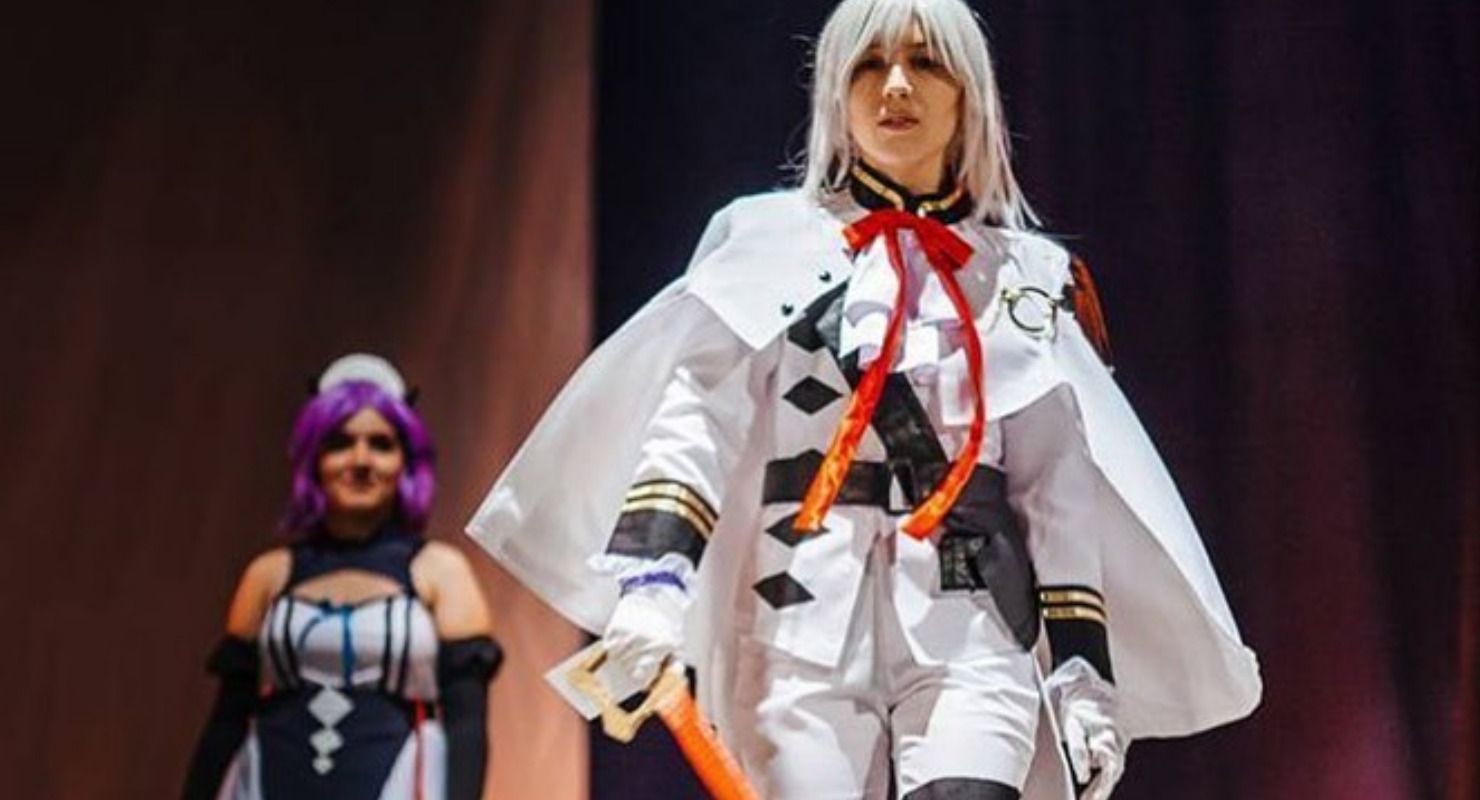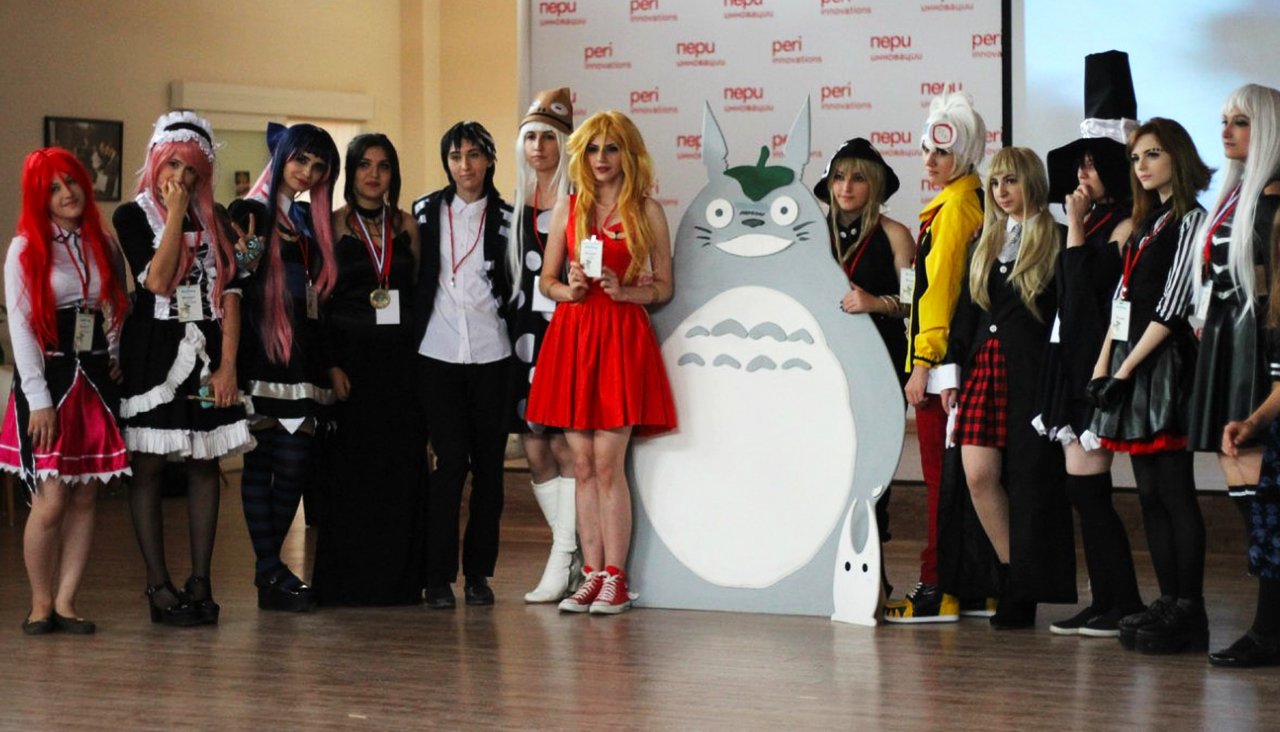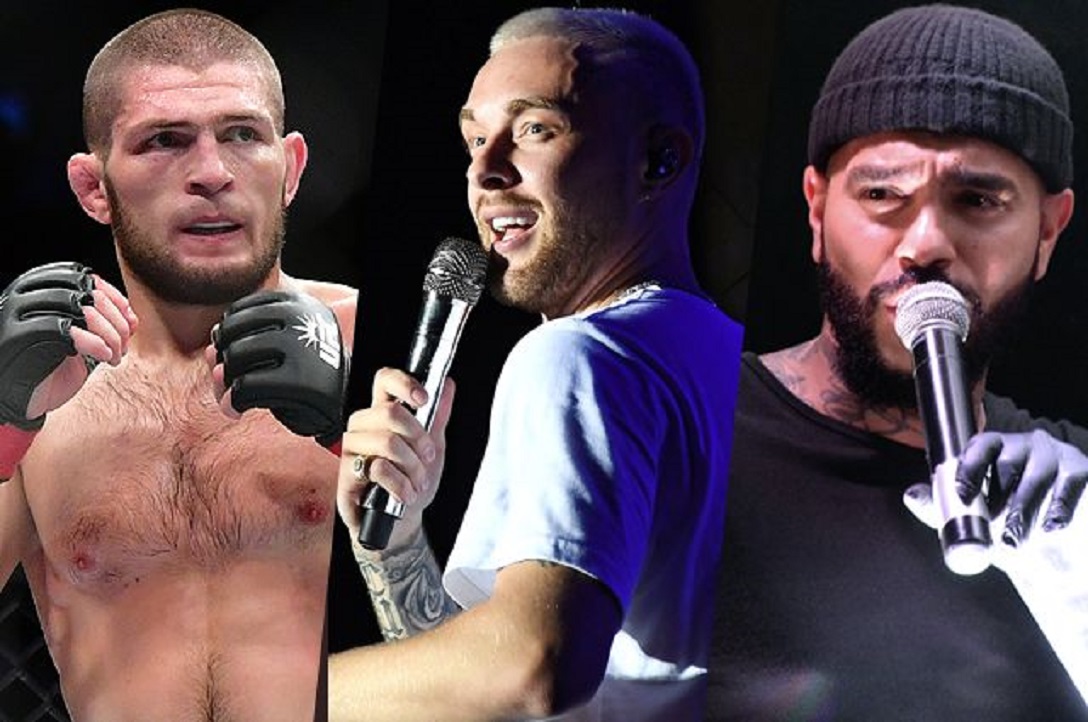
Film screenings of a K-pop concert, an anime festival, and a concert by Russian rapper Kreed — all cultural events cancelled in recent months after pressure from those claiming to be defenders of Daghestani culture and religion. But for those wishing to attend such events, the backlash has little to do with traditions and more a ‘desire to feel significant’.
On 25 November, a mob of around 100–150 angry young men gathered outside a theatre in Makhachkala, the Daghestani capital. The men were upset that the AniDag Festival, a celebration of Japanese animation — anime — was about to start inside the theatre.
The men promised to ‘bury’, ‘shoot’, and ‘kill’ the participants of the festival, accusing them of ‘corrupting’ the youth of Daghestan.
The organisers and participants of the festival, held up inside the theatre, were publicly threatened with reprisals and accused of debauchery.
According to AniDag organiser Saida Tuchalova, police officers who were called to ensure public order remained inside the theatre. She says that not only did they not intervene in the confrontation, but two of them also began insulting the festival participants ‘repeatedly and loudly’, saying that ‘this is an LGBT gathering’.
Tuchalova was herself detained by police, and held until the evening before being released.
Tuchalova tells OC Media that trouble began after a video appeared online of participants in costume as anime characters rehearsing just before the event was due to begin.
She says the theatre’s press secretary secretly shot the video on her phone, despite a request from the organisers not to do so. Tuchalova says the press secretary then published the video in a closed group on Instagram.
The reaction was almost instantaneous, with posts appearing on social media calling for the festival’s participants to go home.
According to Tuchalova, despite receiving payment from the organisers in advance, the director of the theatre, Magomedrasul Magomedrasulov, refused to follow through with the contract and allow the festival to go ahead. She said he accused the organisers of ‘deceiving him’, and ‘walked around the hall insulting the girls, telling them they looked like prostitutes’.
‘He said that “here you have a striptease and debauchery”, and called us drug addicts’, Tuchalova says.

A lawyer for the festival’s organisers, Patina Nuradinova, told OC Media that on 27 December, the organisers appealed to the Daghestani Prosecutor’s Office over the disruption of the event, the insults, and the threats. On 16 January, the Prosecutor’s Office forwarded the complaint to the Centre for Countering Extremism.
Nuradinova reported that the anime festival was now planned to be held in April, and the organisers were seeking to have officers from the Centre for Countering Extremism guarding the event.
According to Tuchalova, six events dedicated to comics, animated cartoons, and Asian geek culture have previously been held in Daghestan; the last one in 2017. This festival was meant to be the seventh.
Daghestan’s Ministry of Culture and the Avar Theatre declined to comment on the incident.
The theatre’s director, Magomedrasul Magomedrasulov, told OC Media he did not consider the event to have been disrupted since an exhibition and sale of handicrafts took place.
‘The riot of losers and gopniks’
At the centre of the social media outrage over the AniDag, was Daghestani actor Eldar Iraziyev, founder of the Pure Heart Foundation. The foundation’s website says it is dedicated to ‘supporting the poor and needy in difficult life situations’.
Speaking of AniDag, Iraziyev made a post on his Instagram, which he later deleted, warning that ‘the festival of gays and transvestites in this city is not far off’.
Iraziyev — who describes himself in one Instagram video as ‘a person who stands out for the preservation of moral cleanliness and for the preservation of spiritual values’ — has long been a vocal opponent of ‘immorality’ in Daghestan.
Svetlana Anokhina, a journalist from Daghestan and senior editor at Daptar, a local online women’s journal, believes the ‘prohibitive movement’ has nothing to do with religion or traditions and has even less to do with morality, although the movement is based in this cultural framework.
‘I call it the “riot of losers and gopniks” ’, Anokhina tells OC Media.
‘I think that the main initiator here is the state. It was the state that built the myth that there is such a beautiful and moral Russia in a wreath of forget-me-nots, which is surrounded by a flock of vile enemies. Enemies, of course, seek to undermine spirituality and morality.’
According to Anokhina, even Russia itself, except for the North Caucasus, is often portrayed as ‘immoral’ in Daghestan.
She says that many young men who are ‘stupid, but very passionate’, have a ‘desire to express themselves and feel significant’. This, she says they do through threats and suppression of various ‘immoral events’.
‘Religion, traditions, and morality, in the name of which everything is supposedly done, are only candy wrappers, empty covers. In fact, the goal is collective harassment. The boys from the working outskirts will always persecute, pursue, and humiliate the boy with glasses and a violin’.
According to Anokhina, the harassment first began in 2006, after an appeal by the imams of Daghestan telling any artist who included Makhachkala in their tour schedule should ‘think carefully before coming to Daghestan’.
At the time, Anokhina says, no one was upset by this statement. A few years later, ‘an organised group of young, athletic-looking men broke into the assembly hall of the Daghestani State University during a rock festival and beat up several local bands.
‘They beat up both guys and girls, and in the name of morality, of course. No investigation was initiated and no one was punished’.
‘I happened to encounter such groups of “athletes” in the last election, in which I was an observer. They entered the crowd, pushed or carried out independent observers from the polling station, and threw ballots in boxes, all with complete indifference to the police and other authorities’, Anokhina says.
In her opinion, recent attempts to prohibit cultural events are rehearsals for future crackdowns on cultural life in Daghestan. Anokhina says she wants people to consider the question of who is behind this suppression.
‘Immoral activities’
The ‘prohibitive movement’, as Anokhina calls it, clearly enjoys a level of public support in Daghestan. Rashid Absalamov, a resident of Makhachkala, says he opposes performances by both Russian and local Daghestani pop groups. He says that these concerts harm the public, especially the younger generations, and have no benefits.
‘There are only lies and debauchery in the songs; there is no use for this music,’ Absalamov tells OC Media. ‘It turns out that bureaucrats benefit from ordinary people degrading over time, but I don’t understand why we support this!’
Though he opposes the performances, Absalamov says such events should be dealt with ‘deliberately and with wisdom, not recklessness and aggression’.
Despite Absalamov’s peaceful convictions, November’s aborted anime festival was not the first cultural event to be cancelled in Daghestan after being met with threats of violence.
A film screening of a concert by Korean-pop group BTS was supposed to take place in cinemas across Daghestan on 26 January. The concert was organised in cities where more than 100 people showed interest.
Several Daghestani groups spoke out against the show on Instagram, calling it a film about ‘Korean homosexuals’.
Due to an onslaught of threats on social media, movie theatres cancelled the screenings.
In September, on the eve of a performance by Russian rapper Egor Kreed, the organisers cancelled the concert despite it being sold out — again, following online threats. The organisers said they ‘couldn’t guarantee the safety of visitors’.
In this case, as with the anime festival, tensions were stoked by a local celebrity. Khabib Nurmagomedov, a mixed martial arts star from Daghestan, entered into a social media spat with Kreed and fellow rapper Timati, the owner of his record label.

[Read on OC Media: Cancelled rap concert sparks freedom of speech debate in Daghestan]
The previous month Nurmagomedov took to Instagram to criticise the behaviour of concertgoers at a performance In Daghestan by Azerbaijani hip-hop performers HammAli & Nava.
In November, there were calls for the closure of Daghestani nightclubs after a Russian National Guard officer was killed in one. Daghestani actor Eldar Iraziyev was again at the forefront of these calls.
‘Who appointed them the guardians of morality?’
Aida Ibragimova, a student in Daghestan who had planned to attend the Korean BTS film, says interest in Korean and Japanese culture is on the rise in the republic.
Ibragimova says that upon learning that the screening had been cancelled in Makhachkala, she intended to go to Chechnya because they were still selling tickets there. However, the show was subsequently cancelled in Chechnya too. Now, she and her friends are thinking about going to the city of Rostov-on-Don, where the film is still showing.
‘There is already a group of young people who are addicted to Korean life. We gather together and study Korean culture, Korean language, and, naturally, attend and take part in the AniDag festival. There is nothing depraved about it’, Ibragimova tells OC Media.
Vazipat Satiyadzhiyeva, a Daghestani photographer, argues that everyone should be free to do what they want as long as it does not overstep the bounds of the law.
Satiyadzhiyeva says she is not a fan of anime culture, but believes that the problems in Daghestan don’t come from anime festivals or other similar ‘temples of depravity’ — an ironic reference to the cancelled events — but rather because people ‘just don’t mind their own business’.
‘Their care for other people’s “sisters, mothers and wives” is a very convenient excuse for their actions. But I personally am irritated by it’, Satiyadzhiyeva tells OC Media.
‘All these so-called righteous [people] take too much upon themselves. Who appointed them the guardians of morality?’




 5 February 2019
5 February 2019


